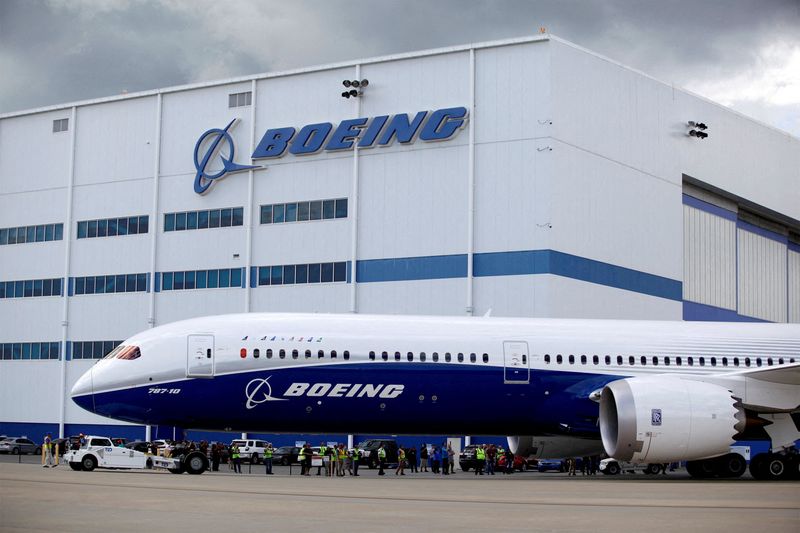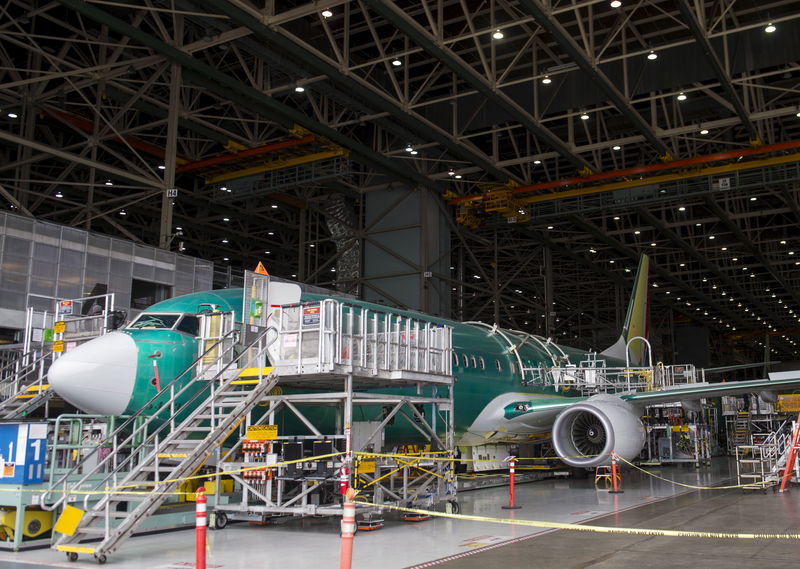By Dan Catchpole and Utkarsh Shetti
SEATTLE (Reuters) -Boeing shares rose 3.5% on Friday on bets that U.S. West Coast factory workers will approve a new wage offer and end a seven-week strike that has hit jet production stopped and has hit the company’s finances.
About 33,000 train drivers, who have been on strike since September 13, will vote on Monday on a new contract offer that will see wages increased by 38% over four years, up from an earlier offer of 35%.
The proposal adds a $12,000 ratification bonus but did not address workers’ demands for the restoration of a defined benefit pension. Boeing (NYSE:) employees rejected two previous proposals during votes on September 12 and October 23.
“It looks promising as it approaches the union’s original target of a 40% pay increase over four years. The fact that the strike lasted almost two months is also a factor in favor of an agreement,” said Ben Tsocanos, director of aerospace at S&P global ratings.
Boeing CEO Kelly Ortberg on Friday urged employees to accept the deal, saying in a letter to staff that it was time to “focus on rebuilding the company and delivering the best aircraft in the world” .
The workers on the picket lines were divided; some told Reuters they were ready to end the grueling strike, while others were determined to sustain the full 40% pay increase.
“It’s not enough. They haven’t even met our demand,” said Kenneth Vi, a 34-year-old quality inspector.
Kate McKinney, a 59-year-old who works on the 737 MAX plane, said she would vote to accept the deal.
“I want to go back to work. Bills are what they are,” McKinney told Reuters.
The strike halted production of Boeing’s best-selling 737 MAX jets and the 767 and 777 widebodies, leading to a $6 billion loss in the third quarter and complicating Ortberg’s turnaround.
Wall Street analysts scanned Reddit posts and social media comments, which foreshadowed employee sentiment in the previous two votes.
The machinists’ union has said it has extracted everything from the company, while warning that future offers could be regressive.
“The economic aspects of the proposal are a material improvement for the labor market. The support of union leaders, unlike the most recent proposal, should help further bridge the sentiment towards ratification,” said Dino Kritikos, director of Fitch Ratings.
Employees have the option to deposit a lump sum of $5,000 of the bonus into their 401(k) retirement account or withdraw cash.
That option, combined with the possibility of workers seeing 20% of their paychecks go into their retirement accounts, could sway retirement hardliners, Jefferies analyst Sheila Kahyaoglu wrote in a note.

Workers have lost an average of $10,400 in wages during the strike, eclipsing the average wage increase in the first year under the offer, Kahyaoglu said. She said Boeing’s recent capital increase puts the company in a stronger negotiating position.
Shares have fallen 8.3% since the strike began in September.


